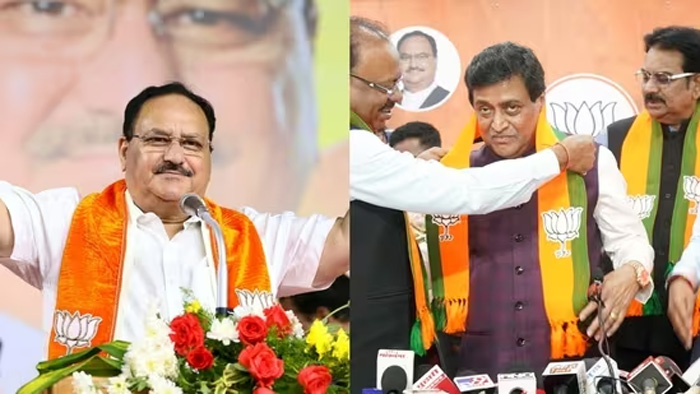BJP fields Nadda for Rajya Sabha polls from Gujarat, Congress turncoat Ashok Chavan from Maharashtra
The Bharatiya Janata Party (BJP) on Wednesday named party chief J P Nadda as its candidate for Rajya Sabha elections from Gujarat and fielded Congress turncoat Ashok Chavan from Maharashtra. Nadda is currently a Rajya Sabha member from Himachal Pradesh but the BJP does not have the numbers to win the lone seat from the Congress-ruled state.
Chavan’s candidature for the Rajya Sabha elections was announced a day after he joined the BJP following his exit from Congress. Chavan’s move follows the recent departures of senior Maharashtra Congress figures Baba Siddique and Milind Deora. While Siddique joined Ajit Pawar-led Nationalist Congress Party (NCP), Deora switched to Eknath Shinde-led Shiv Sena.
In its latest list of candidates for upcoming biennial elections for the upper house, BJP’s central election committee approved four names from Gujarat and three from Maharashtra.
The other three BJP candidates from Gujarat are Govindbhai Dholakia, Mayankbhai Nayak and Dr Jashvantsinh Parmar. Medha Kulkarni and Dr Ajit Gopchhade have been named as party candidates from Maharashtra.
Earlier today, the BJP released its second list of candidates for the Rajya Sabha elections, fielding Union minister L Murugan, Maya Narollya, Bansilal Gurjar and Umesh Nath Maharai from Madhya Pradesh. Union minister Ashwini Vaishnaw was named as BJP candidate from Odisha.
How Rajya Sabha elections are held
If the number of candidates is equal to the number of vacancies, then no polling is required, and all the candidates are declared elected unopposed. However, if there are more candidates than vacancies, a poll is conducted by the system of proportional representation by means of a single transferable vote. In the case of a poll, the votes are counted as per the single transferable vote system, and the candidates securing the required quota of votes are declared elected.
The seats are allocated to candidates based on the number of votes they receive. The number of seats allocated to each party is determined by their strength in the respective Legislative Assembly.

